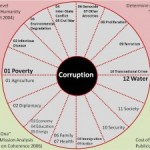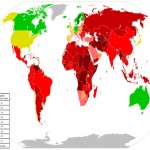
My good friend Robert Bryce, author of the must-read Power Hungry: The Myths of ‘Green' Energy and the Real Fuels of the Future just launched this little torpedo.
T. Boone Pickens badly misjudged the supply and price of natural gas.
By ROBERT BRYCE, Wall Street Journal, 22 December 2010
After 30 months, countless TV appearances, and $80 million spent on an extravagant PR campaign, T.
Boone Pickens has finally admitted the obvious: The wind energy business isn't a very good one.

Phi Beta Iota: Buckminster Fuller and Russell Ackoff nailed it–everything has to be evaluated in relation to energy source and cost and time cost, and you have to focus on doing the right things, not doing the wrong things righter. Where Mr. Pickens went wrong was in sticking with the centralized ownership concept. Wind power and solar power are best for localized applications. The central grid–the Industrial Era top down control grid, is DEAD. Similarly, water and sewage should not be centralized grids demanding massive investments in collection and processing. The graphic to the right shows corruption in the center–when analytics and decision-making lose their holistic integrity, they inevitably fail to achieve the desired outcome while creating cascading costs everywhere else. Military spending in the USA is at the beginning of a nose dive–our military leaders would be wise to get a grip sooner than later, and “beat the dive” by making evidence-based decisions (Advanced IO) sooner than later. Now a really advanced thought: 21st Century national security is about eradicating corruption at home and abroad–this makes possible the creation of a prosperous world at peace. The breadth of that challenge is in the graphic below. That is an IO challenge, not a kinetic challenge. IO must be co-equal to kinetics beginning immediately. In our humble opinion.

Journal: ‘Systemic Corruption’–Daunting Challenge in Globalized Era
Reference: Frog 6 Guidance 2010-2020
Reference: Transparency Killer App Plus “Open Everything” RECAP (Back to 01/2007)
Reference: Cultures of Resistance–A Look at Global Militarization



